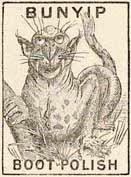ABOUT owls and trout other interesting local creatures, amateur observation has revealed quite a bit over the years. Of polar bears, though, not a lot, and unless they fly in with the bats come summer to hang upside down in the pear tree it is where the state of knowledge at the Billabong will likely remain. Pity about that. There has been so much talk and writing about polar bears lately it would be terrific to know a firm thing or two – not a thesis’ worth or even a monograph, just enough of the creatures’ habits to raise an eyebrow at purported descriptions of their more unlikely ones. The careerism of some specialists in that field, that is entirely understandable, $50 million to one researcher alone being a very pleasurable piece of change to allocate and administer. But bears aren’t half so obvious as humans, their mysteries growing in inverse proportion to the expanding body of literature they inspire. What do they eat and how often? Can they really swim 200 miles? Is cannibalism really on the rise, or do males snack on unguarded cubs as they ever have? Tomcats kill kittens and nobody blames warm weather; perhaps polar bears police their gene pool likewise?
They are all matters on which it would be lovely to take the experts at their word. Except you can’t because, as polar biologist Jeffrey Gleason told a US federal agent, the public and publicists’ reactions to anything concerning polar bears is bizarre. “All this stuff is odd,” as Gleason put it.
He was talking about his co-authored paper, the one that inspired Al Gore’s crusaders to make a drowning bear their standard. Finding four dead bears (or was it only three?) struck Gleason as “interesting”, quite unusual even, but the fuss and the way it “just took off” was beyond rational. Why, his PhD supervisor even wrote him a stern note for lending his name to such a carnival! Somewhat abashed, Gleason added that, yes, it would have been good to take a closer look at the four (or was it three?) and other floating carcasses, but by the then the science was settled and further investigation beside the point. Polar bears are dying because the ice cap is melting, that was the immediate message – thin fare, true, but more than enough to sustain hungry reporters and fund-raisers. No need after that for necropsies to hunt out parasites, abscessed teeth or bullets because, as the carbon choristers are forever keen to chant, climate change is real and dead polar bears its prophets.
In light of the latest sad news from Norway, that conditioned inability to trust the official word is a curse, those eager climate beavers having begun to cloud the waters even before the bodies of bear and boy were taken off the beach. Young Horatio Chapple was not the victim of bad luck, it was global warming wot dun it, as the BBC reported:
The reason is climate change. As rising temperatures melt the sea ice, the number of polar bears may rapidly dwindle. That could mean that there are far fewer bears surviving for people to come into conflict with. But if polar bear numbers fall, we may revere them even more, with more tourists and adventurers flocking to catch a final glimpse of these animals.If the sea ice retreats, it will also mean that more polar bears will be forced to hunt further inland. And that means more polar bears roaming around parts of the Arctic and sub-Arctic that people call home.
Closer to home, true believer Wendy Carlisle, scourge of deniers at their ABC, didn’t bother with the Beeb’s either/or. She settled the science straight away with the same presumption and surmise so recently deployed against Viscount Monckton. “On that Polar Bear,” she tweeted, “it was hungry. Ice sheets melting. Expect more of it.”
And that is why it would be wonderful to be as sure of facts about polar bears as of our Melbourne sparrows or the endless feud between magpies and crows. Even a smidgin’ of independent reading raises questions for which there are no ready answers. For example, it is summer in the land of the rising sun, and isn’t that when polar bears are supposed to be landbound by the annual melt? So they should be on the shore at this time of year, right?, regardless of whther or not the poles are melting. Maybe a tortured planet cannot be saddled with blame for a schoolboy’s death after all? Maybe or maybe not, but it is impossible to form a focused view.
And what of the attack of itself, how many like it have recent years seen? Quite a few apparently, but that is just a laybunyip’s impression from a little light reading. Those suspicions and others could be settled with access to some straight-bat science, or even from the secondary source of genuinely objective journalists’ notes. None of what you need is there, though -- not the science, not the reporters and certainly not the clarity.
Poor Horatio was supposed to be learning about climate change when its most recognised symbol did him in. If you can find irony in the fog of doubts in which advocacy has shrouded both research and ethics, there is a second, and perhaps greater, tragedy to be observed on that Norway beach.

